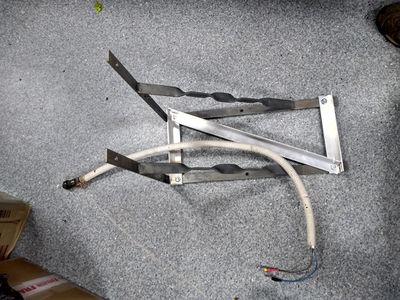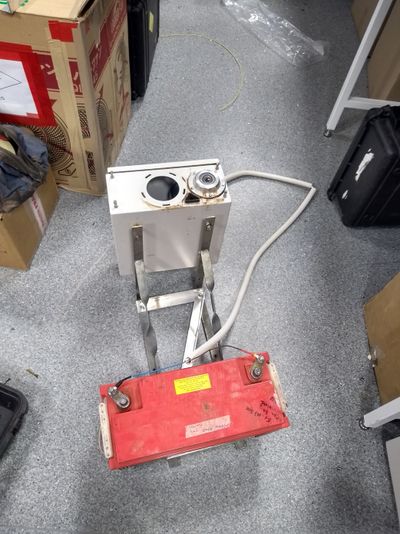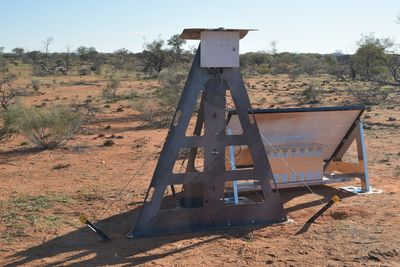Difference between revisions of "DFNEXT temporary station"
(→using Fireball imaging stand) |
(→using L-bracket weighted down by battery) |
||
| Line 35: | Line 35: | ||
== using L-bracket weighted down by battery == | == using L-bracket weighted down by battery == | ||
| − | A | + | A short ring-terminals -> Amphenol cable can be used for this setup (save long cables for other setups). |
[[File:L_bracket_temporary_stand_assembly.jpg|400px]] | [[File:L_bracket_temporary_stand_assembly.jpg|400px]] | ||
[[File:L_bracket_temporary_stand.jpg|400px]] | [[File:L_bracket_temporary_stand.jpg|400px]] | ||
| − | |||
== using Fireball imaging stand == | == using Fireball imaging stand == | ||
Latest revision as of 12:51, 12 November 2020
Things needed:
- DFNEXT
- DSLR
- Lens
- WiFi antenna
- Modem + SIM
- GPS+GSM antenna
- 1 hard drive (6TB): do not put more than 1 as this will drain the battery faster
- higher gain GSM antenna, if required
- battery
- power cable: ring terminals -> Amphenol
- camera stand (2 types, see below)
Contents
Special staggered still triggering mode
- Martin T's script, parameters...
- crontab modification
Special forced video recording
Tips
- Follow instructions for setup.
- Important: do not move or touch the stand or camera box once the night has started: Astrometric calibration images for both video and still are going to be recorded in the early part of the night when the moon is not up.
- Close the box and use WiFi or VPN to check on the camera instead of LAN cable once setup.
Camera stand options
using L-bracket weighted down by battery
A short ring-terminals -> Amphenol cable can be used for this setup (save long cables for other setups).
using Fireball imaging stand
- Place battery and shovel gravel/rocks on the foot of the stand.
- Use ratchet straps to tension the stand (or fencing wire, the usual method).
using FireOpal imaging stand
Place battery and shovel gravel/rocks on the foot of the stand.
need picture...


